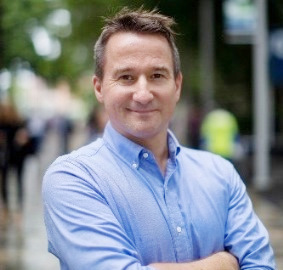
Marcus Foth is Professor of Urban Informatics in the QUT Design Lab, Creative Industries Faculty at Queensland University of Technology and an Honorary Professor in the School of Communication and Culture at Aarhus University, Denmark. He also founded the Urban Informatics Research Lab and QUT Design Lab in 2006 and 2016 respectively.
Always ahead in his field, it is no wonder that Marcus has received over $5 million in national competitive grants and industry funding. He received the Queensland Young Tall Poppy Science Award 2013, and was inducted by the planning, design and development site Planetizen to the world’s top 25 leading thinkers and innovators in the field of urban planning and technology.
Marcus’ transdisciplinary research brings together people, place, and technology. Even before “smart cities” became a catch phrase, Marcus has stretched the boundaries by exploring how people create, apply and use information communication technology and data in cities and urban environments through urban computing. His talent and expertise in the field of “smart cities” have seen him collaborate with Open Data Institute Queensland for the Open and Agile Smart Cities (OASC) network to Australia in the year 2015. In the year 2017, his reputation have helped him secure appointment to the Built Environment Task Force of the Smart Cities Council Australia New Zealand and the Infrastructure Innovation Task Force of the Queensland Department of Infrastructure, Local Government and Planning.
His contribution to the academia speaks volumes. Marcus has authored and co-authored over 180 publications in journals, edited books, and conference proceedings. He also serves as editor in many prestigious journals and has been appointed as ACM Distinguished Speaker.
It is a great honour to have Marcus as one of the keynote speakers for the upcoming i-USEr 2018 - it's time to traverse from just a hamlet to diverse smart dwellings and we are providing you the opportunity to learn from the Master himself.
Title: Smart Cities beyond Fad and Hype: Connecting People, Place and Technology
Ubiquitous computing, mobile devices, and big data come together to give rise to a new urban paradigm being celebrated by many technology corporations and local governments alike: the smart city. Yet, the current hype around smart cities often tends to be technocratic.
What evidence is there to suggest that a smart city can provide genuine answers to a number of complex problems cities face?
The presentation will move the discussion beyond technology fads and data hype. It will introduce insights from applied research to realign the smart city agenda with the needs of people and the urban environment.